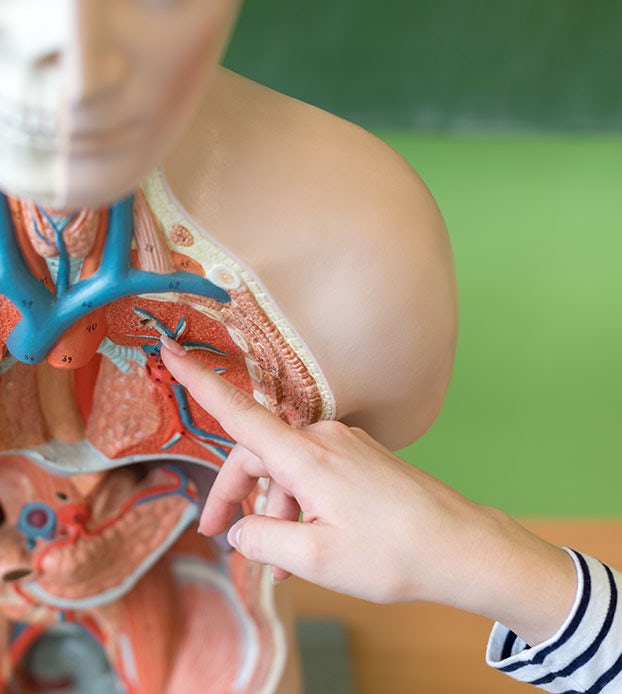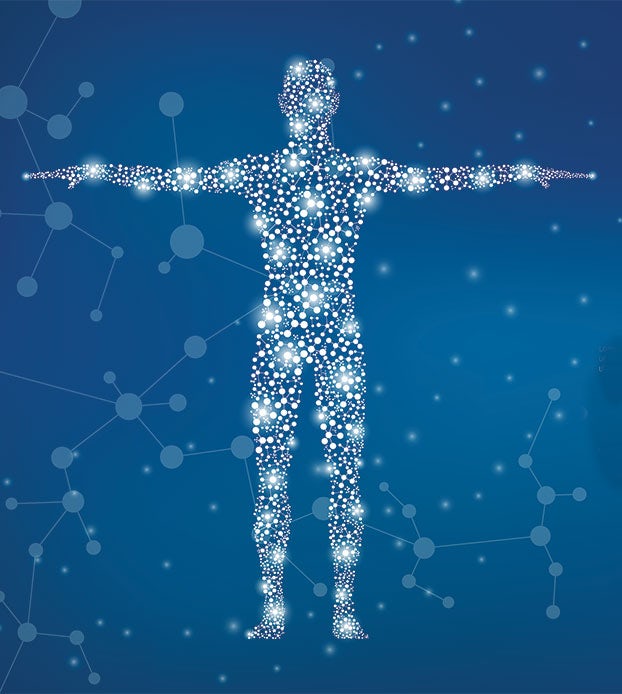Can cannabis help you focus and motivate you to study more effectively? Like all substances designed to help you, it depends. Cannabis is used for many things, from pain relief to stress reduction, to help in getting a good night’s rest. For some enthusiasts, cannabis use is a daily ritual and studying is just one more thing that happens while cannabis is in their system. For others, cannabis is intentionally used as a study aid to help bring more focus, energy or creativity.
Is studying high a good idea?
While cannabis has a reputation for impairing focus and concentration, some who use it for studying say that it actually helps them to stay focused and engaged with their work. The science on the topic paints a similarly conflicted picture:
- Some studies suggest that cannabis, particularly THC, can negatively impact focus. For example, one 2009 study found that cannabis with only 2.5% THC produced significant impairment in attention and concentration 30 minutes after being used by occasional cannabis users. 1 2
- However, there is also a fair bit of research showing no changes or even improvements in focus when using cannabis. One 2001 study on chronic cannabis users found no significant differences in attentional processing between the placebo group and those who had just used cannabis. But, the cannabis users actually scored significantly higher on a task that required sustained attention. Similarly, in a 1999 study, researchers found that chronic cannabis users who had just used cannabis actually improved on a task of divided attention. 3 4
Can cannabis help or impair focus?
In fact, some studies suggest cannabis can seriously reduce stress, and can improve symptoms of ADHD. Still, more research is needed to fully understand cannabis’ impact on focus and concentration. 5 6
Interestingly, tests done on occasional cannabis users seem to show impairments while those done on chronic cannabis users tend to show no differences or improvements in focus. Researchers have theorized that this may be because long-term cannabis use can reduce normal levels of focus – but then bring it back to normal while high. In fact, one 2004 study found that chronic cannabis users had reduced levels of focus without cannabis, which normalized after consuming cannabis again. 7
On the other hand, this lowered level of focus without cannabis might also be explained by preexisting conditions of people who frequently use cannabis to self medicate. If cannabis helps them focus given their condition, this could predispose them to become daily cannabis users.
Does cannabis impact memory?
Another key aspect of studying is remembering what you’ve learned. In fact, that’s the entire point of studying. Cannabis has a reputation for making people forgetful, and that reputation is well deserved. Over the past 40 years, researchers have continued to find that cannabis impairs working memory – the ability to hold information, manipulate it, and remember it after a short delay. If you’ve ever walked into a room to get something and promptly forgot what you went in there for, it was your working memory letting you down.
Some studies have found that the THC in cannabis can impair working memory and extend the time it takes to complete a task. Still, the type of cannabis seems to matter. CBD in cannabis seems to have no negative impacts on memory and may even reduce the impact of THC. Since there are different levels of THC and CBD in different varieties of cannabis, some may have bigger impacts on memory than others. 8
The dose and frequency of cannabis use also matters. Multiple studies have shown that occasional users suffer from memory issues while high, but chronic cannabis users do not. Luckily for occasional users, memory issues tend to disappear 24-48 hours after use. 9
Research also points to age, genetics and gender, as factors that may make THC’s impact more pronounced for some users than others. 10 11 12
Can cannabis reduce energy and motivation?

A final concern for studying while high is how cannabis can impact your energy levels and motivation. Cannabis is well known for causing ‘couch lock’, a state where you are so tired and lacking motivation that you can’t even get up off the couch.
Still, surveys consistently find that cannabis can produce both sedative and energizing effects, depending on the type of cannabis, the way it is consumed, the dose, and the individual’s unique endocannabinoid system. Surveys have found strains marketed as indicas tend to have more sedative effects, while those marketed as sativas have more energizing effects – although this can vary by the individual. However, we also know that classifying cannabis on the basis of indica or sativa may play no role since the chemical profile may vary greatly, regardless of their labeling. 13
When it comes to motivation, some studies point to a statistical tie between cannabis use and reduced chances of graduating high school or college. But it is impossible to tell whether cannabis use reduces educational attainment, or if some other characteristic encourages both lowered achievement and cannabis use – such as mental health conditions, chronic pain, or even a troubled family life. Studies looking more directly at how cannabis impacts motivation while someone is high have found both increased and decreased motivation, and some have found no differences at all. 14 15 16
If you study high, here’s how to do it well
Is studying high a good idea? It depends on many factors. For some, it may be a huge help and for others it may cause big problems. Studying high isn’t for everyone. But for those who do want to study high, there are a few guidelines to keep in mind for best results:
1. Decide whether studying high is right for you
If you are a healthy, infrequent cannabis user, even a low dose you are likely to experience some pretty overt effects on your memory, focus and attention. If you use cannabis daily or have a condition like ADHD, you may or may not see big changes if you study high, or you may even see improvements. Either way, try it out on a low-stakes studying mission first – not an important test.
2. Make sure you get the right cannabis for you
Higher CBD strains are generally less likely to cause negative side effects than high THC strains, but not for everyone. Try a variety of products and see how they impact you before you use one to study. Then aim for those that leave you feeling energized, focused and creative.
3. Dose your cannabis carefully
A low dose may help you stay focused and engaged while a high dose of the same product may leave you feeling drowsy and unfocused. So start with low doses and increase slowly and carefully as needed. This generally means with inhalation waiting 15 minutes (or more) after a single puff, helping you to dial in that sweet spot for studying rather than just getting stoned. For edibles, you’ll have to wait longer before redosing and fine tuning may be more difficult, especially because we all metabolize THC a little differently. Sticking to the same product or brand may be helpful while tuning in your study-friendly edible dose.
4. Keep checking in
If you start studying high and find your performance suffers, it might not be right for you. Let your results be the guide, and only continue using cannabis if it is truly benefiting you. Cannabis may help you study, but not necessarily. Trial, error, some self-awareness and a cannabis journal will go a long way in figuring out what works for you.
Sources
- Crean, R. D., Crane, N. A., & Mason, B. J. (2011). An evidence based review of acute and long-term effects of cannabis use on executive cognitive functions. Journal of addiction medicine, 5(1), 1–8. https://doi.org/10.1097/ADM.0b013e31820c23fa
- Morrison, P., Zois, V., McKeown, D., Lee, T., Holt, D., Powell, J., . . . Murray, R. (2009). The acute effects of synthetic intravenous Δ9-tetrahydrocannabinol on psychosis, mood and cognitive functioning. Psychological Medicine, 39(10), 1607-1616. doi:10.1017/S0033291709005522
- Hart, C. L., van Gorp, W., Haney, M., Foltin, R. W., & Fischman, M. W. (2001). Effects of acute smoked marijuana on complex cognitive performance. Neuropsychopharmacology : official publication of the American College of Neuropsychopharmacology, 25(5), 757–765. https://doi.org/10.1016/S0893-133X(01)00273-1
- Haney, M., Ward, A. S., Comer, S. D., Foltin, R. W., & Fischman, M. W. (1999). Abstinence symptoms following smoked marijuana in humans. Psychopharmacology, 141(4), 395–404. https://doi.org/10.1007/s002130050849
- Cooper, R. E., Williams, E., Seegobin, S., Tye, C., Kuntsi, J., & Asherson, P. (2017). Cannabinoids in attention-deficit/hyperactivity disorder: A randomised-controlled trial. European neuropsychopharmacology : the journal of the European College of Neuropsychopharmacology, 27(8), 795–808. https://doi.org/10.1016/j.euroneuro.2017.05.005
- Cuttler, C., Spradlin, A., Nusbaum, A.T. et al. Blunted stress reactivity in chronic cannabis users. Psychopharmacology 234, 2299–2309 (2017). https://doi.org/10.1007/s00213-017-4648-z
- Kelleher LM, Stough C, Sergejew AA, Rolfe T. The effects of cannabis on information-processing speed. Addict Behav. 2004;29(6):1213-1219. doi:10.1016/j.addbeh.2004.03.039
- Crean, R. D., Crane, N. A., & Mason, B. J. (2011). An evidence based review of acute and long-term effects of cannabis use on executive cognitive functions. Journal of addiction medicine, 5(1), 1–8. https://doi.org/10.1097/ADM.0b013e31820c23fa
- Schoeler, T., & Bhattacharyya, S. (2013). The effect of cannabis use on memory function: an update. Substance abuse and rehabilitation, 4, 11–27. https://doi.org/10.2147/SAR.S25869
- Schoeler, T., & Bhattacharyya, S. (2013). The effect of cannabis use on memory function: an update. Substance abuse and rehabilitation, 4, 11–27. https://doi.org/10.2147/SAR.S25869
- Henquet, C., Rosa, A., Krabbendam, L. et al. An Experimental Study of Catechol-O-Methyltransferase Val158Met Moderation of Δ-9-Tetrahydrocannabinol-Induced Effects on Psychosis and Cognition. Neuropsychopharmacol 31, 2748–2757 (2006). https://doi.org/10.1038/sj.npp.1301197
- Farhang, B., Diaz, S., Tang, S. L., & Wagner, E. J. (2009). Sex differences in the cannabinoid regulation of energy homeostasis. Psychoneuroendocrinology, 34 Suppl 1(0 1), S237–S246. https://doi.org/10.1016/j.psyneuen.2009.04.007
- Michelle Sexton, Carrie Cuttler, and Laurie K. Mischley.The Journal of Alternative and Complementary Medicine.Mar 2019.326-335.http://doi.org/10.1089/acm.2018.0319
- NIDA. 2021, April 13. How does marijuana use affect school, work, and social life?. Retrieved from https://www.drugabuse.gov/publications/research-reports/marijuana/how-does-marijuana-use-affect-school-work-social-life on 2021, November 14
- Lawn, W., Freeman, T.P., Pope, R.A. et al. Acute and chronic effects of cannabinoids on effort-related decision-making and reward learning: an evaluation of the cannabis ‘amotivational’ hypotheses. Psychopharmacology 233, 3537–3552 (2016). https://doi.org/10.1007/s00213-016-4383-x
- Pacheco-Colón, I., Coxe, S., Musser, E. D., Duperrouzel, J. C., Ross, J. M., & Gonzalez, R. (2018). Is Cannabis Use Associated with Various Indices of Motivation among Adolescents?. Substance use & misuse, 53(7), 1158–1169. https://doi.org/10.1080/10826084.2017.1400566
Sign up for bi-weekly updates, packed full of cannabis education, recipes, and tips. Your inbox will love it.

 Shop
Shop Support
Support
















